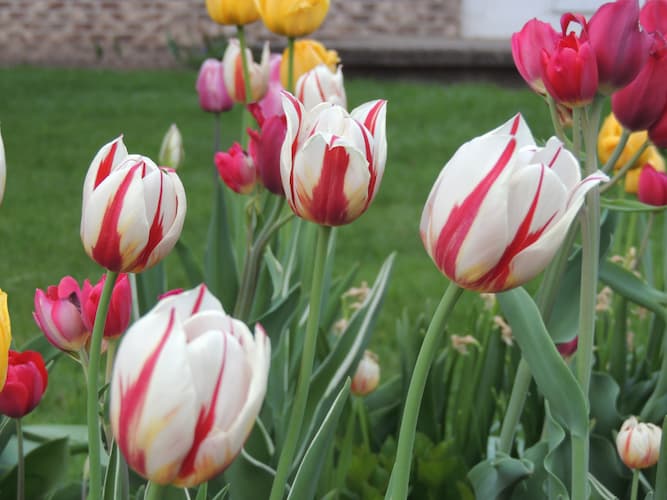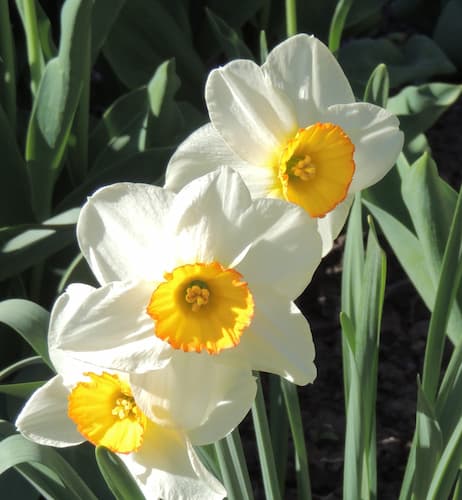Recommended Flower Bulb Planting Depth

About Proper Planting Depth for Bulbs and Corms
The recommended flower bulb planting depth is important. Plant them too deep, and they can’t fight their way to the surface. Planting them deeply will also increase the moisture level they experience. While bulbs are used in cold, wet soils, too much water can cause them to rot. Plant them too shallow, and they can freeze and die if the soil freezes to their depth.
So, how deep should fall and spring flower bulbs be planted? What is the proper depth? There is no deep secret or rocket science here. In general, the bigger the bulb, the deeper it is planted. Our “How to Grow” guides provide the proper planting depth for each bulb or corm.
While we commonly speak of bulb planting depth, the same rules apply to corms.
For Rhizomes and tuberous roots, most plants prefer to be planted just below the surface, with the “eye” pointing up. An inch or two deep is fine for most plants. Plant large rhizomes a little deeper. Again, for more specific instructions, see the particular plant’s how-to-grow instructions.
When buying bulbs, corms, or rhizomes, check to see if there are planting instructions on the package. If available, use the supplier’s recommendations.
Bulb and Corm Planting Rule of Thumb
If you don’t know the proper planting depth for a particular bulb or corm, use the following Rule of Thumb:
Plant bulbs or corms twice the diameter of the bulb. Or, three times the height of the bulb (or Corm).

More on Growing Bulbs, Corms and Rhizomes
Depth – Do you know how deep to plant bulbs and corms? Find out.
Fertilizer – How to fertilize your bulbs and corms.
Forcing Bulbs – It’s a rewarding winter indoor gardening activity.
How to Grow – Learn or review the steps to preparing the flower bed.
Pests – There’s no shortage of pests who eat or rob your planted bulbs.
Propagation – Our flowers are so beautiful. Let’s make more!
Related Articles
Also, people who read this article will like:
Flower Gallery Find pictures of your favorite flowers.
Buy Bulbs, Corms, and Rhizomes – And, remember to buy extra for growing indoors in the winter.
Please support our site. Shop for:
- rmmatthews100@hotmail.com
- 585-721-6528
- Rochester, NY
©1999-2024 GardenersNet.Com, All Rights Reserved

